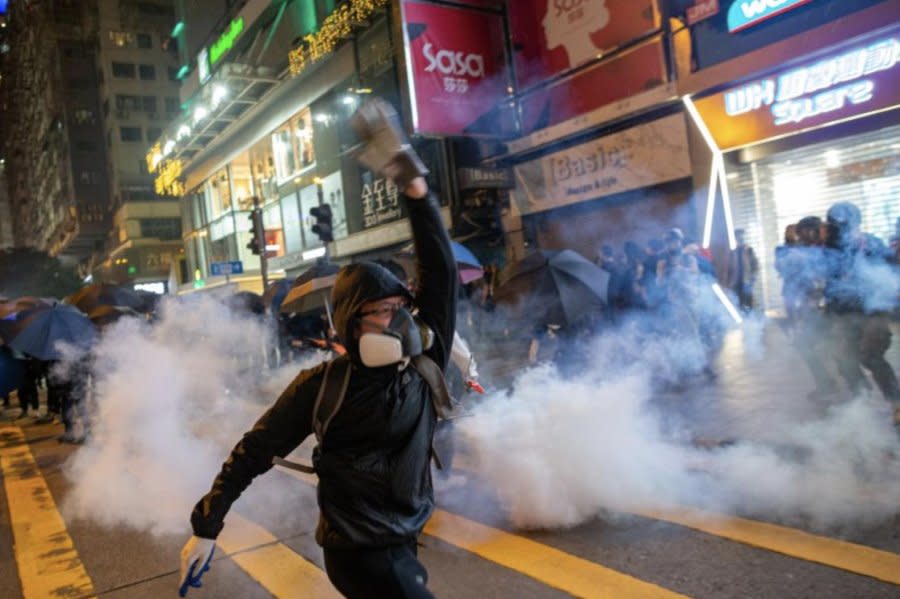Hong Kong government files appeal in effort to restrict popular protest song

Aug. 7 (UPI) -- Hong Kong on Monday appealed a July high court ruling that quashed government restrictions on the pro-democracy protest song "Glory to Hong Kong," which has been confused recently with China's national anthem and vilified as a potential threat to national security.
The Justice Minister of Hong Kong announced Monday he had filed for a review in the Court of Appeal in a continuing effort for an injunction against the ballad in cases where the popular tune is being used to trigger a rebellion.
"The Secretary for Justice acting as a guardian of public interest applied for the interim injunction for the purpose of discharging the constitutional responsibility of the Government of the Hong Kong Special Administrative Region to safeguard national security by effectively preventing, suppressing and imposing punishment on acts or activities endangering national security, and to preserve the dignity of the National Anthem," a spokesperson for the Hong Kong justice department said.
Previously, the Justice Department filed for an injunction on June 5, seeking to bar distribution of the protest song, citing sedition and other violations related to national anthem laws.
But in a July 28 ruling on the matter, high court judge Anthony Chan said he was not "satisfied" with the facts to grant the government's request to deny the free-speech right to sing the song.
"Given that the Injunction is aimed at criminal acts but not lawful activities, I believe that the intrusion to freedom of expression here, especially to innocent third parties, is what is referred to in public law as 'chilling effects,'" Chan wrote in his decision. "With respect, I am unable to agree that the chilling effects may be dismissed simply because the Injunction is not aimed at lawful pursuits."
The Justice Department later said its effort was aimed only at those who used the song with the intent of inciting a secession and was not seeking to completely ban the song in the public domain, which Chan also acknowledged in his decision.
The song gained widespread notoriety in 2019 when pro-democracy demonstrators used it as a rallying cry to oppose a plan by Beijing to extradite criminal suspects to mainland China, which many considered a threat to the continued independence of the region under the "one country, two systems" principle.
Hong Kong remains a Special Administrative Region of China, however, the territory does maintain a high degree of autonomy from Beijing, including its own legal system, currency and government sectors that deal with immigration, defense and foreign policy.
The song raised eyebrows last November when it was played in place of the Chinese national anthem during a finals rugby match between Hong Kong and South Korea at the Asia Rugby Sevens tournament, before becoming the subject of intense debate throughout the region in the months since.
Meanwhile, Justice Department lawyers claimed in the appeal that the court had agreed "there can be little doubt that the song ... was used to incite secession, and the four classes of acts that the application for interim injunction sought to prohibit are plainly or likely to constitute criminal activities."
Several legal experts also called the ruling "fundamentally wrong," saying the court failed to consider the national security implications over free speech rights, while several pro-Beijing lawmakers have called on Hong Kong's Justice Department to scale back the weight of the ban to get some version of it on the books.

